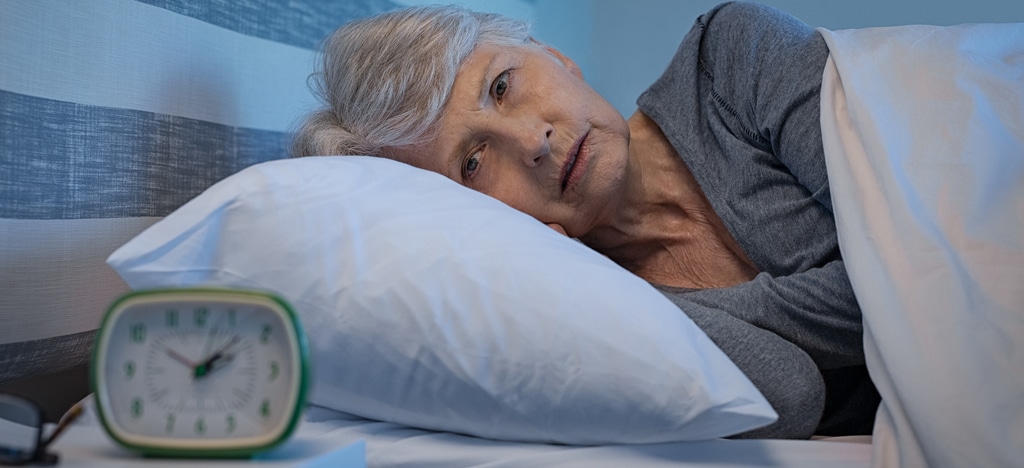Insomnia or difficulty with sleep onset and/or sleep maintenance is common and affects many of us at some point in our lifetime. With the Covid-19 pandemic a part of our daily lives now, it comes as no surprise that there has been a significant surge in sleep issues.
It is normal to have lighter and deeper sleep across the night and very brief awakenings. However, if you are having ongoing problems with getting to sleep or maintaining sleep which is consistently affecting your everyday function, it is best to seek professional health advice.
It may be possible that there is an underlying cause for poor sleep, further investigations may be needed by your doctor and treatment of these conditions may be all that is required.
What are the natural therapies for sleep? (meditation, herbs, supplements, diet, lifestyle)
Some natural strategies to aid in sleep include:
Cognitive behavioural therapy (CBT-I)
CBT-I is evidence-based and recommended as first line therapy for the management of insomnia by the Australasian Sleep Association, which can be undertaken online or with a trained psychologist. This involves structured sessions that focus on removing unhelpful beliefs about sleep and changing behaviours to aid sleep such as sleep hygiene, sleep restriction, stimulus control and progressive muscular relaxation.
Practicing good sleep habits and lifestyle changes
This includes:
- Maintaining a consistent bedtime and wake time every day to regulate the circadian rhythm. Get changed when you get out of bed as you would for a normal work day.
- Avoiding stressful ruminations before or at bedtime. Allocate time earlier in the day to reflect and address worries. Cut back on news and social media and limit news to a few reputable sources only.
- Avoiding lying in bed for long periods of time worrying about sleeping. If unable to sleep after 20 minutes, get up and do something relaxing, then return to bed when sleepy
- Increasing light exposure during the day and keeping the bedroom dark when sleeping
- Reserving the bedroom for sleep and intimacy only. Avoid working from bed and screen time before and in bed.
- Avoiding heavy meals in the late evening before bed and try to stick with balanced diet with less sugars and fats. Minimise caffeine and alcohol intake.
- Undertaking regular daily exercise, but avoiding vigorous physical activity within 3 hours of bedtime
Relaxation and meditation
It helps to unwind and relax 1-2 hours before going to bed. Avoid any stimulating activities during this time and do something relaxing like reading, listening to music and having a bath. Activities such as meditation, mindfulness and deep breathing have been shown to help lower stress hormones and decrease tension.
Natural herbal supplements
Whilst a limited number of people have found these to help, there is limited evidence for natural sleep aids and herbal supplements such as valerian, chamomile, passionflower, hops and kava. Studies have seen them no more effective than placebo for treating insomnia and they are generally not recommended. Although these appear to be generally well tolerated, some can have side effects and rarely may affect the liver. Herbal medicines may also interact with existing medications so it is best to see your GP for discussion.
What are the Medications for sleep
Sometimes first line CBT-I, sleep hygiene and relaxation may not be successful and short term medication, used in conjunction may be required, if deemed appropriate after assessing benefits and harms by your doctor. It is important to note however that these medications have not been found to help long term in chronic insomnia compared to CBT-I.
Melatonin
Melatonin is a hormone that is produced by the pineal gland in the brain that plays an important role in the body’s internal clock of sleep and wakefulness.
Whilst its level of effect over placebo was modest in clinical trials, melatonin works by improving sleep onset and regulating the body’s circadian rhythm. Unlike other sleeping tablets, prolonged release melatonin does not seem to cause dependence, impaired daytime alertness, or rebound insomnia on cessation, so may be preferred choice for some individuals.
Hypnotics
Benzodiazepines and the Z-drugs are usually reserved for acute insomnia and used for a very short duration and intermittently. Long term use can be habit forming and eventually will not be as effective. Side effects include daytime drowsiness, cognitive impairment, dependence and rebound insomnia on cessation.
Other options
There are some other medications with sedating effects such as antihistamines, anti-depressants and anti-epileptics. They are not used solely for insomnia but may be recommended for primary treatment of an underlying cause. It is best to seek health professional advice to find what is most appropriate for you.
Apps that can help
Meditation and mindfulness
CBT for insomnia
 Dr Catherine Phan is an Australian doctor who has worked in urban and rural hospitals.
Dr Catherine Phan is an Australian doctor who has worked in urban and rural hospitals.
Previously based in Sydney, Dr Phan has worked as a GP for the past six years at a busy Sydney practice. She holds a Diploma in Child and Adolescent Health (USYD) as well as a Certificate in Sexual and Reproductive health from Family Planning Australia.
Dr Catherine is based at our Holland Village clinic.


































